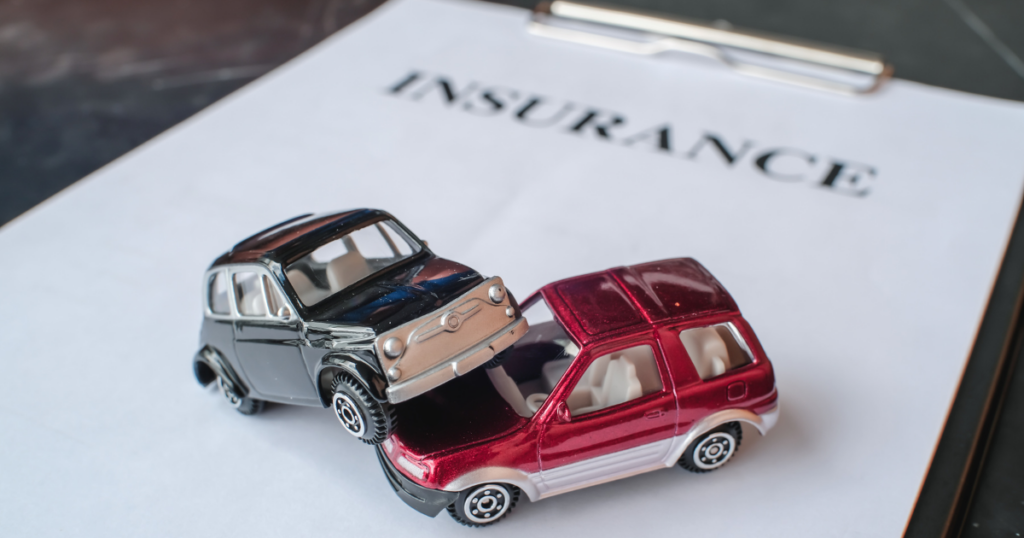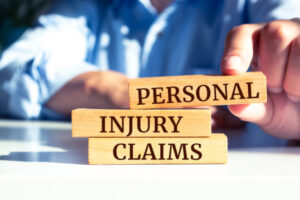Featured Article

Navigating the aftermath of a car accident can be overwhelming, especially when dealing with insurance companies and their adjusters. Insurance companies prioritize their profits, which can usually mean offering settlements that don’t fully cover your losses. At The Law Office of David M. Kennedy, located in Sherman/Denison, Texas, we help North Texas car accident victims level the playing field. To assist you in handling insurance adjusters effectively, here are some proven strategies and tips for navigating the claims process while safeguarding your rights.
Understand the Adjuster’s Role
Insurance adjusters representing ‘the other drivers’ are tasked with investigating claims, determining liability, and negotiating settlements. In reality, they are assessing their driver’s fault and thus the insurance company’s monetary exposure if it gets before a jury, and then they are tasked with trying to make all claims disappear without a trial and for the fewest dollars possible. Always remember you are dealing with insurance companies. They may appear friendly and sympathetic, but their ultimate goal is to save the insurance company money. According to the Insurance Information Institute, the average auto liability claim for bodily injury was $20,235 in 2020. Adjusters will aim to reduce this amount through quick settlements that may not account for all your losses.
This is where a skilled personal injury attorney, like David M. Kennedy in Sherman, Texas, can make a significant difference. With years of experience advocating for car accident victims, The Law Office of David M. Kennedy helps clients navigate the claims process, build strong cases, and secure rightful compensation.
Best Practices for Communicating with Insurance Adjusters
1. Be Prepared Before the Call
Before speaking to an adjuster, gather all relevant information, including:
- The police report from your car accident.
- Contact information for witnesses.
- Documentation of medical treatment and expenses.
- Evidence of property damage, such as photographs or repair estimates.
Before speaking to an adjuster, CONTACT AN ATTORNEY. Most seasoned attorneys view a potential client speaking with an adjuster – not from their insurance company but that of another driver involved – as extremely risky and seldom helpful. David M. Kennedy looks at it this way: as an accident victim speaking to an adjuster for the at-fault driver whose real goal is to see you walk away with zero recovery, you must understand that “anything you say may be used against you in a court of law,” just like police officers have to tell those being arrested. In fact, what you say – if it hurts your case – WILL be used against you! Thus, never, ever talk to even your own adjuster about fault or your injuries without first speaking to David M. Kennedy. It is best to let him handle all such communications.
2. Stick to the Facts (If you must!)
If you decide not to head the foregoing warning, then when discussing your accident, provide only factual information. Avoid guessing or speculating about details, as inaccuracies can harm your case. In fact, here is an example of how even the simple answers can be misinterpreted or later work to your disadvantage. If you say, “I am not sure of my speed,” that may limit – at least in the ears of the jury – your ability to say what you believe your speed was, but also other aspects upon which your memory is important. It is best to let your attorney provide that information. Giving a name, which vehicle you were operating, time and location of the accident should be all you ever provide on your own to an adjuster.
3. Limit What You Share
It’s essential to understand that even in speaking with your own adjuster if your car was insured, that you provide only the basics of where and when it occurred, and that upon advice of counsel, you can provide no more and will get back to them with the name of counsel. DO NOT assume your communications with your own adjuster to be privileged, and understand that if a lawsuit is filed, the other side may very well be able to obtain your statements to your own adjuster.
4. Don’t Accept a Quick Settlement
Adjusters often offer low settlements soon after an accident, hoping you’ll accept before realizing the full extent of your injuries or damages. For instance, some injuries, like whiplash or concussions, may not manifest symptoms immediately. Before agreeing to any settlement, consult a personal injury lawyer to evaluate whether the offer is fair and sufficient.
5. Keep Records of All Communication
If you speak with an adjuster, document every interaction with the insurance company, including:
- The date and time of calls.
- The names and titles of the individuals you spoke with.
- A summary of what was discussed.
This record can be crucial if disputes arise. Building a compelling case often requires expertise that a seasoned attorney like David M. Kennedy provides.
Proving Fault and Maximizing Compensation
In Texas, fault plays a critical role in determining compensation. Texas follows a “modified comparative negligence” rule, meaning your compensation can be reduced if you are found partially at fault for the accident. If you are deemed more than 50% at fault, you may be barred from recovering any compensation.
To help your attorney establish fault:
- Keep evidence like photographs, video footage, and contact information for witnesses.
- If the police investigated the accident, obtain a police report and know the location and approximate time of the accident to help the police department determine who investigated the accident.
- Contacting the Law Office of David M. Kennedy early on may increase the chances that Mr. Kennedy can assist in putting you with healthcare providers to establish a treatment of injury record.
A knowledgeable attorney like David M. Kennedy can gather and present compelling evidence to demonstrate the other party’s liability while minimizing any claims of shared fault against you.
Why You Need a Personal Injury Attorney
Since insurance companies have teams of adjusters and lawyers working to protect their interests, shouldn’t you have someone fighting for yours? Studies have shown that accident victims represented by attorneys typically recover three times more compensation than those who handle claims alone.
If by the time you read this you are already speaking with an adjuster – stop. Contact The Law Office of David M. Kennedy, and let Mr. Kennedy direct those communications while at the same time ensuring a proper evaluation of your injuries are timely made. It can make all the difference in the world when it comes to ensuring you are fairly compensated.
Conclusion
Dealing with insurance companies can be, and often is, detrimental to your personal injury claim. By following these best practices—sticking to the facts, limiting what you share, and consulting with a trusted personal injury lawyer like David M. Kennedy—you can focus on your recovery while ensuring your claim is handled properly.
If you or a loved one has been injured in a car accident in Sherman, Denison, or elsewhere in North Texas, contact The Law Office of David M. Kennedy today! We’re committed to helping you navigate the complexities of insurance claims and obtain the compensation you deserve. Call us for a free consultation and let us advocate for you when dealing with insurance companies.




